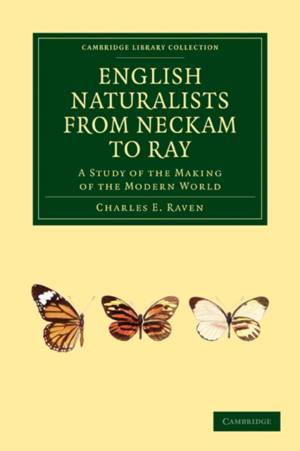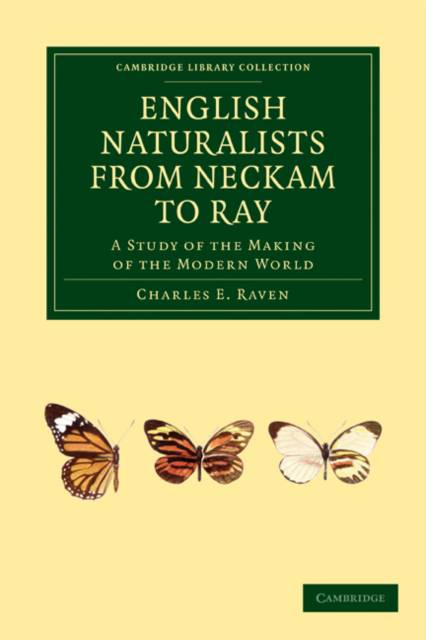
Bedankt voor het vertrouwen het afgelopen jaar! Om jou te bedanken bieden we GRATIS verzending (in België) aan op alles gedurende de hele maand januari.
- Afhalen na 1 uur in een winkel met voorraad
- In januari gratis thuislevering in België
- Ruim aanbod met 7 miljoen producten
Bedankt voor het vertrouwen het afgelopen jaar! Om jou te bedanken bieden we GRATIS verzending (in België) aan op alles gedurende de hele maand januari.
- Afhalen na 1 uur in een winkel met voorraad
- In januari gratis thuislevering in België
- Ruim aanbod met 7 miljoen producten
Zoeken
English Naturalists from Neckam to Ray
A Study of the Making of the Modern World
Charles E Raven, Raven
€ 95,45
+ 190 punten
Omschrijving
C. E. Raven (1885-1964) was an academic theologian elected Regius Professor of Divinity at the University of Cambridge in 1932, who developed an interest in natural history and the history of scientific thought. First published in 1947, this volume demonstrates how changing attitudes to the natural world reflected and influenced the transformations in scientific thought between the medieval period and the eighteenth century. Raven's focus on the field of 'natural history' reveals how the scientific ideas behind modern biological studies developed from the richly illustrated and often fantastical bestiaries of the medieval world. The subjects of this volume are grouped chronologically into Pioneers, Explorers and Popularisers, with biographical details woven together with discussions of their academic work. The book provided a wealth of new information concerning the founders of natural history and remains a valuable contribution to this subject.
Specificaties
Betrokkenen
- Auteur(s):
- Uitgeverij:
Inhoud
- Aantal bladzijden:
- 394
- Taal:
- Engels
- Reeks:
Eigenschappen
- Productcode (EAN):
- 9781108016346
- Verschijningsdatum:
- 31/10/2010
- Uitvoering:
- Paperback
- Formaat:
- Trade paperback (VS)
- Afmetingen:
- 152 mm x 229 mm
- Gewicht:
- 576 g

Alleen bij Standaard Boekhandel
+ 190 punten op je klantenkaart van Standaard Boekhandel
Beoordelingen
We publiceren alleen reviews die voldoen aan de voorwaarden voor reviews. Bekijk onze voorwaarden voor reviews.









